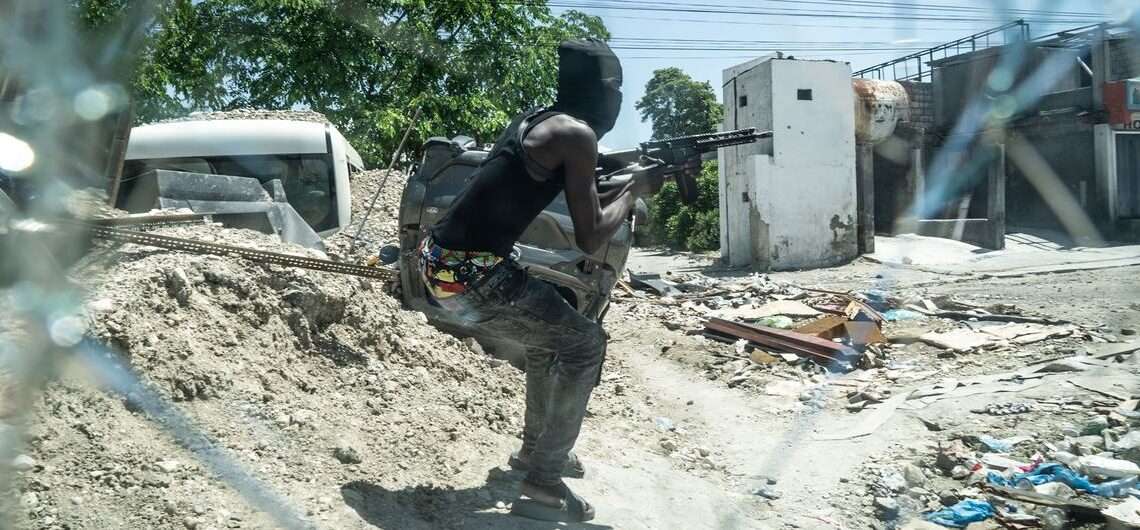At least 3,661 people have been killed in Haiti since January due to escalating gang violence, according to a report released by the UN Human Rights Office (OHCHR) on Friday, September 27.
The report highlights how the island nation is grappling with an intensifying wave of violence, as well as growing political and socioeconomic instability.
The UN stressed that tackling insecurity in Haiti must be a top priority for the country’s authorities and the international community. The call for action came as the UN outlined the toll that armed gangs continue to take on Haitian society.
“No more lives should be lost to this senseless criminality,” said UN High Commissioner for Human Rights Volker Türk.
Gang violence in Haiti has worsened since March, with armed groups launching coordinated attacks on key government facilities, including police stations and two major prisons in the capital, Port-au-Prince.
These gangs have also expanded their reach into the southern part of the West Department, which had been relatively untouched until now.
The OHCHR report covers the first six months of the year and reveals disturbing patterns of human rights violations across Port-au-Prince and the Artibonite Department, Haiti’s primary agricultural region.
Sexual violence, particularly rape, has been used by gangs as a weapon to punish and subjugate local populations. The report states, “Gangs have continued to use sexual violence to punish, spread fear, and subjugate populations.”
Farmers Flee As Crops Stolen
Children have also been victims of this escalating crisis, with gangs recruiting large numbers of minors into their ranks. At least 36 children were among the 860 killed during police operations in the first half of the year, where accusations of unnecessary and disproportionate force were raised.
The gang violence has crippled agriculture, particularly in the Artibonite region, where 1.6 million Haitians are already facing severe food insecurity. Armed groups have extorted farmers, stolen crops, and forced many to flee more than 3,000 hectares of fertile land, contributing to Haiti’s growing food crisis.
The report noted that gangs “have extorted farmers cultivating their lands and have often descended on fields, armed with guns and machetes, to steal their crops and livestock.” As a result, many farmers have moved to less productive areas in search of safety, further endangering food production.
To stabilize the country, the UN Security Council authorized Kenya’s Multinational Security Support Mission (MSS) to support Haiti’s overwhelmed police force. So far, 430 personnel have been deployed.
“It is clear, however, that the Mission needs adequate and sufficient equipment and personnel to counter the criminal gangs effectively and sustainably and stop them spreading further and wreaking havoc on people’s lives.”
Volker Türk

He welcomed recent positive steps, including the establishment of a Transitional Presidential Council and the new transitional government, but emphasized that further action is necessary to halt the violence.
OHCHR is also helping MSS develop a compliance mechanism to ensure that its operations are in line with international human rights standards, as mandated by the UN Security Council resolution.
Strengthening Haiti’s Institutions
Despite international forces, Türk called on Haitian authorities to take stronger steps to rebuild essential state institutions such as the judiciary and the police force, which have been weakened by widespread corruption.
He argued that restoring the rule of law is critical for holding perpetrators of violence and human rights abuses accountable.
Türk also urged Haitian leaders to protect children from gang recruitment, address rampant gender-based violence, and provide greater security for internally displaced persons.
Furthermore, he called for the enforcement of targeted sanctions, including an arms embargo, travel bans, and asset freezes, imposed by the UN Security Council to weaken the grip of violent gangs on the country.
The international community’s involvement is seen as vital in helping Haiti navigate this period of insecurity as the country continues to battle not only gang violence but also a deepening humanitarian crisis.
READ ALSO: Stonebwoy Takes His ‘Jejereje’ Tune To Howard University




















